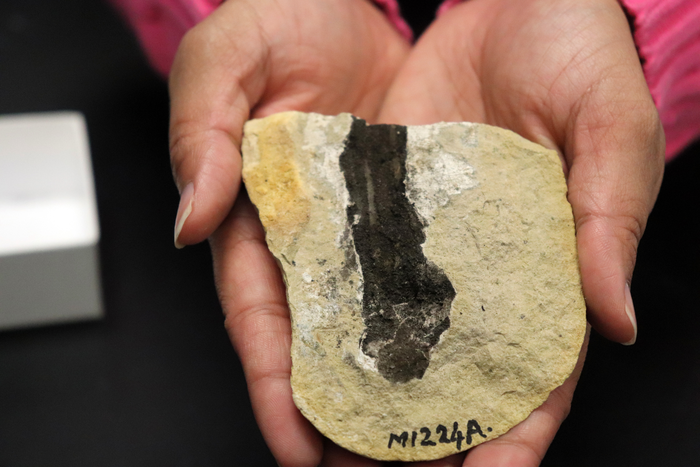Past climate change may have played vital role in preserving ocean fossils, study says
‘Extreme and rapid climate change’ in Early Jurassic may have contributed to fossil preservation

Rising global temperatures and a rapidly changing climate 183 million years ago may have created conditions conducive for preserving the soft and delicate bodies of dead marine animals at the time, a new study suggests.
The research, published in the journal Scientific Reports, found the remains of squid-like vampyropods with ink sacs and ornate crustacean claws and fish with intact gills and eye tissue were well preserved in a similar manner in different locations across the world.
It suggested that past climate change likely created the conditions needed for the fossilisation of these animal remains.
“When I started the research, I had no idea if they would preserve the same way or a different way. I was curious what led to the exceptional preservation,” study lead author Sinjini Sinha, a graduate student at the University of Texas (UT), said in a statement.
Fossilisation is a complex process that involves the formation of minerals within the tissues of dead organisms.
In the new study, scientists examined different parts of fossil specimen using an electron microscope that could detect chemical elements present in these minerals.
While the fossils came from different parts of the world – including Strawberry Bank in southern England, Posidonia Shale in southern Germany and Ya Ha Tinda in Alberta, Canada – researchers said they showed several similarities.
Citing an example, researchers said they found phosphorus in some of the examined tissues – such as crustacean exoskeletons and vampyropod soft tissues – that don’t usually contain the element, indicating the environment was the source of these minerals.
“We expected there to be some similarities, but finding that they were so similar was a bit surprising,” study co-author Rowan Martindale, an associate professor at UT, said.
“Phosphorus is an element that you don’t expect to see in sedimentary rocks. It generally doesn’t get buried in large amounts except in unusual circumstances,” Drew Muscente, another co-author of the study, explained.
Researchers believe a period of extreme and rapid climate change – which was likely caused by an influx of greenhouse gases into the atmosphere by volcanic eruptions during the Early Jurassic about 200 to 145 million years ago – may have been that circumstance.
They said rising global temperatures at the time may have led to increased rainfall that stripped large amounts of phosphorus-rich sediment from rocks on land into the world’s oceans.
“Perhaps one of the biggest takeaways of this work is that global events in the past could have set the stage for the exceptional preservation seen in fossil-rich marine deposits around the world regardless of their location, lithologies, environments, and depositional setting,” Javier Luque, a research associate at Harvard University, who was not part of the study, said in a statement.
While the ongoing human-driven climate crisis is also depleting the oxygen levels of the Earth’s oceans, scientists said it would be “millions of years before anyone can say whether there is a boost in exceptional fossils”.
Subscribe to Independent Premium to bookmark this article
Want to bookmark your favourite articles and stories to read or reference later? Start your Independent Premium subscription today.

Join our commenting forum
Join thought-provoking conversations, follow other Independent readers and see their replies